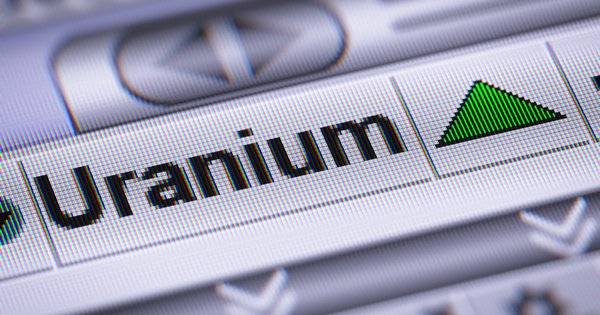Australian uranium company Yellowcake has successfully raised US$125 million through a share placement to fund the purchase of uranium concentrates, capitalizing on growing global interest in nuclear energy.
The company announced yesterday that it had completed the placement at a price of £4.25 (US$5.40) per share, representing a 3.2% discount to its previous closing price. The funds will be used to acquire physical uranium, adding to Yellowcake’s already substantial stockpile as the comp
...
Australian uranium company Yellowcake has successfully raised US$125 million through a share placement to fund the purchase of uranium concentrates, capitalizing on growing global interest in nuclear energy.
The company announced yesterday that it had completed the placement at a price of £4.25 (US$5.40) per share, representing a 3.2% discount to its previous closing price. The funds will be used to acquire physical uranium, adding to Yellowcake’s already substantial stockpile as the company positions itself to benefit from rising uranium prices.
“This successful capital raise demonstrates the strong market confidence in both Yellowcake’s strategy and the improving fundamentals of the uranium market,” said Andre Liebenberg, CEO of Yellowcake. “With growing recognition of nuclear power’s role in the clean energy transition, we believe this is an opportune time to increase our uranium holdings.”
The placement attracted significant interest from both existing and new institutional investors, reflecting the broader market sentiment toward uranium as a strategic commodity. Investment bank Canaccord Genuity acted as the sole bookrunner for the transaction.
Yellowcake was established in 2018 with the explicit purpose of holding physical uranium as an investment asset. The company now holds approximately 18.8 million pounds of U3O8 (uranium oxide concentrate), stored in facilities in Canada and France. This latest capital raise will allow the company to expand its inventory at a time when uranium prices have been trending upward.
Global uranium prices have risen substantially over the past two years, climbing from about US$30 per pound in early 2021 to current levels of approximately US$80 per pound. The price surge reflects growing concerns about uranium supply constraints amid increasing demand for nuclear energy.
Nuclear power has experienced a remarkable revival in global energy discussions as countries seek reliable, low-carbon alternatives to fossil fuels. Following years of decline after the 2011 Fukushima disaster in Japan, nuclear energy has gained renewed support from policymakers worldwide who recognize its potential to provide baseload power with minimal greenhouse gas emissions.
Several factors have contributed to the tightening uranium market. Major producers, including Kazakhstan’s Kazatomprom and Canada’s Cameco, have implemented production cuts in recent years to address oversupply. Meanwhile, strategic uranium reserves are being established in the United States and other nations concerned about energy security.
Market analysts point to supply challenges ahead. “The uranium market is facing a potential structural deficit over the coming decade,” said Jonathan Hinze, president of UxC, a leading nuclear fuel market research firm. “New mine development has been limited for years, while we’re seeing nuclear plant life extensions and new reactor builds accelerating in multiple regions.”
The geopolitical landscape has further complicated the uranium supply chain. Russia currently controls approximately 40% of global uranium enrichment capacity, creating concerns for Western nations seeking to reduce dependence on Russian nuclear fuel in the wake of the Ukraine conflict.
In the United States, the Biden administration has proposed a $4.3 billion plan to boost domestic uranium enrichment capabilities, while the European Union has included nuclear energy in its sustainable investment taxonomy despite opposition from some member states.
China remains the most aggressive nuclear builder globally, with plans to construct up to 150 new reactors over the next 15 years as part of its decarbonization strategy. Japan has reversed course on its post-Fukushima nuclear phaseout, restarting idled reactors to enhance energy security and meet climate goals.
For investors, companies like Yellowcake offer exposure to uranium price movements without the operational risks associated with mining. The model has proven attractive during market upswings, though critics note that physical holding companies do not contribute to addressing supply shortages.
“Yellowcake’s business model resonates with investors seeking pure exposure to uranium price appreciation,” explained Nick Lawson, a resources analyst at Berenberg Bank. “The company effectively acts as a uranium bank, allowing institutional investors to gain commodity exposure without the complexities of futures contracts.”
Following the capital raise, Yellowcake’s total uranium holdings will represent approximately 1% of global annual uranium consumption, making it one of the larger non-governmental owners of physical uranium worldwide.
The company has indicated it intends to complete its uranium purchases in the coming months, taking a measured approach to avoid significantly impacting spot market prices. Industry observers will be watching closely to see how this additional institutional buying pressure affects a uranium market already showing signs of tightness.


